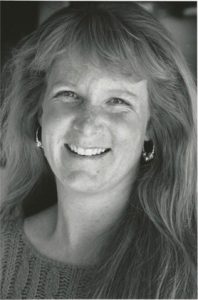 In my last Blog, ‘Ready To Go The Distance?’ I addressed the issue of how few Americans actually understand the likelihood of their own longevity – let alone the cost of that reality. While there’s some great news about this new longevity, there are also some very scary aspects. Yet by addressing these issues through conversation and planning, we (and our loved ones) have the ability and peace of mind to know we’re prepared for whatever may lie ahead. Being November is Long Term Care/Alzheimers Awareness month, now is a perfect time to start talking about it.
In my last Blog, ‘Ready To Go The Distance?’ I addressed the issue of how few Americans actually understand the likelihood of their own longevity – let alone the cost of that reality. While there’s some great news about this new longevity, there are also some very scary aspects. Yet by addressing these issues through conversation and planning, we (and our loved ones) have the ability and peace of mind to know we’re prepared for whatever may lie ahead. Being November is Long Term Care/Alzheimers Awareness month, now is a perfect time to start talking about it.
Perhaps one of the best aspects of this evolving longevity is the creation of new ideas, products, strategies and terminology to address the various elements of it. Long term care (LTC) now being referred to as Extended Care is one such example. But it’s beyond just the name change, it’s the concept of care, where and how the care is provided that has been truly revolutionized. Yet unfortunately, like many of the issues addressed in these Blogs, most people are unaware of the positive changes made – and as a result, have outdated beliefs about the reality of living long.
The problem with outdated beliefs is that it stagnates us from moving forward and benefiting from the improvements available to address a difficult issue. The reality is 72% of Americans are concerned about a serious health problem late in life — 82% of which fear memory loss, and 60% are concerned about being a burden on their family for care. Unfortunately, it’s the isle of denial — while 70% of people 65+ will need some form of LTC/Extended Care in their lifetime, 70% don’t believe it will ever be them. As a result, their very fear comes to fruition — 80% of the care is provided by the family – at an extraordinary toll — emotionally, physically, mentally, and of course, financially.
The reality is, the 85+ is the fastest growing segment of the U.S. population and there’s a 50% chance of some form of dementia/Alzheimer’s at this life stage. Yet again, while most people are completely unaware of this fact, the result of doing nothing is not only creating difficulties in American families, but is also resulting in a huge uptick in senior bankruptcy. In fact, the 65+ is the fastest growing segment seeking bankruptcy protection over the last 20 years! The 65+ is up 150% — and the 75+ is up 433%.
While there are a variety of solutions – from products to services, the majority of Americans have no idea what they are – primarily due to a negative, and sadly, very outdated belief about both the type of care available and how/where the care is administered. Hence, the brilliant decision to start by changing the term from LTC (which most people believe is exclusively nursing home care – and it’s not) to Extended Care, which provides the opportunity to not only change the conversation, but the image of a service that is essential with the aging of America.
For starters, the fastest growing segment of healthcare is home healthcare. Technology and services have advanced to the point that we can care for people more effectively, and less expensively within their own homes – where most people want to be. Additionally, senior care environments have kept pace with the times by evolving from a clinical/ institutional type design to more residential that looks and feels like home.
Because LTC/Extended Care is not covered by Medicare, the financial/insurance services industry has also really stepped up with the creation of a variety of unique products (including hybrids) that can help people actually afford the type of care they want, where and how they want it, while still maintaining a healthy family relationship. Even still, while the majority of people believe most everyone will need extended care (including they themselves someday), only 16% actually have a product that will provide it. The question is, why? Most likely it’s due to a lack of understanding of not only what the care actually consists of — but more importantly, the vast variety of products and plans available to provide it.
The reality is, 75% of people say helping them sort through all these different options is of the most valuable financial advice available today.
The question is: Are We Talking About It?